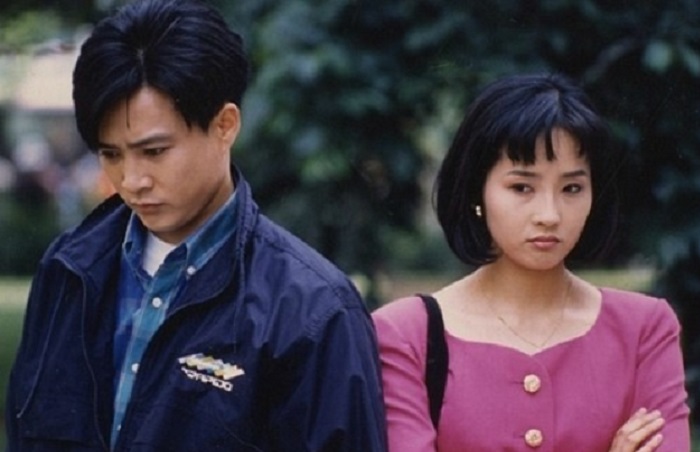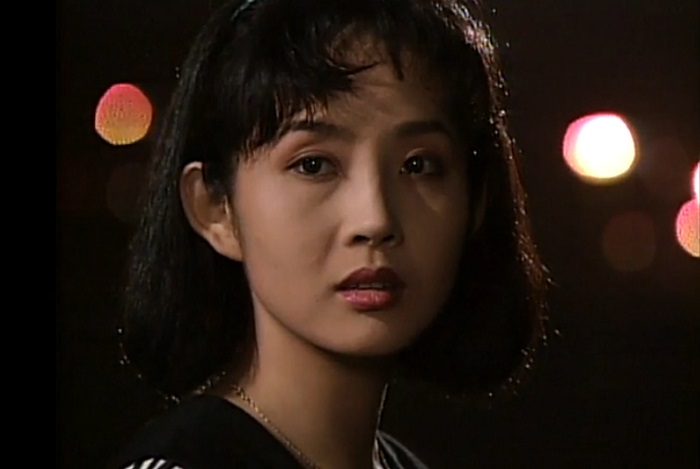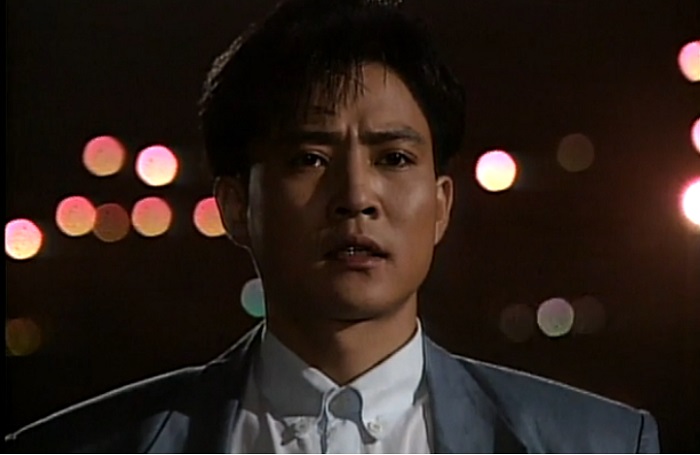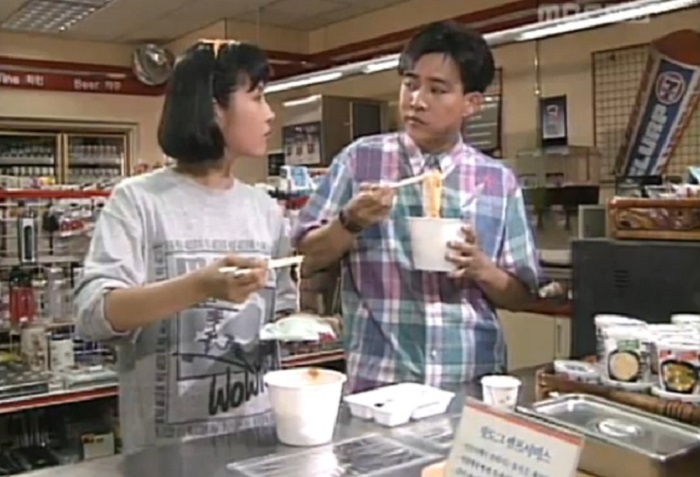
The 16-episode TV series ‘Jealousy,’ aired on MBC in 1992, hit the highest viewer ratings of 56.1 percent.
A 1992 TV drama series sparked romance, and also jealousy across Korea.
Aired on MBC from June to July of 1992, the 16-episode TV drama “Jealousy (질투)” depicted the pure love, infused with a subtle sense of jealousy, of a young couple. The series answered the much asked question: “Is it possible for a man and woman who are 'just friend' to fall in love?" The show was based on the 1991 novel, “Long Shadow of My Love” by Yoon Myung-hye.
The story revolves around two main characters -- Ha Kyung and Young Ho -- who are old college buddies and best friends. Ha Kyung lives together with her single mother who works as editor-in-chief at a magazine publishing house. Ha Kyung works for a travel agency. Her only joy in life is to hang out with her old buddy, Young Ho. Although they are long-term friends, their relationship teeters on the threshold of love and friendship.
One day, Young Ho comes across a beautiful, intelligent and wealthy woman, named Young Ae, who runs a pizza restaurant, and he soon falls in love with her. When Ha Kyung realizes that Young Ho has feelings for someone else, she feels bouts of jealousy and realizes Young Ho is more than just a friend to her. She tries to suppress her sense of jealousy and decides to give up her feelings for him. She tells Young Ae, “Please care for him.”
Ha Kyung also has a long-time secret crush on her middle-school tutor, Sang Hoon. She reunites with Sang Hoon, but soon finds out that he is a calculating perfectionist, which upsets and annoys her. Ha Kyung then realizes that her true love, Young Ho, had been right in front of her all along. He, too, feels that his friend and true love has always been Ha Kyung. The narrative comes to an end when Young Ho and Ha Kyung confess their love for one another and hug passionately.


A scene from the 1992 MBC soap opera 'Jealousy' features the male and female leads, long-term friends who end up confessing their love for one another. Actress Choi Jin-sil (top) and actor Choi Soo-jong star as the drama's lead characters.
The storyline that addressed love and urban lifestyles among young people of the 1990s, often dubbed “X generation,” brought the viewership of the show up to 56.1 percent, one of the highest-ever rating of a drama-series aired during its time slot. It swept through home theaters, creating a frenzy among female viewers in their 20s who identified with the female lead, over a narrative about the transition from being just friends to lovers.
This series became the first Korean production to be broadcast in China. In 1993, Harbin TV imported and aired "Jealousy", as well as the 36-episode “Eyes of Dawn”, an epic drama aired on MBC, 1991, a first for Korean soap operas at a time when Japanese soap operas dominated Asian broadcasting markets. Amid the sweeping popularity of Japanese TV series, “Jealousy” caught the eyes of Chinese audiences.
The drama also catapulted the hero and heroine to stardom. Actress Choi Jin-sil who portrayed the female lead Ha Kyung, made her debut with the production and became a household name overnight. With her beauty and flawless acting ability, the actress was nicknamed, “The Sweetheart of the Nation.” Actor Choi Soo-jong who starred as the lead male, too, became the byword for “urban youth.” The theme song, which starts with, “Who on earth are you looking at as I stand before you? Don’t make me wait so long,” become everyone’s favorite song.
One of the highlights of the series is undoubtedly, the final scene, where both characters finally confess their love, the feelings they have long held back, for one another. Young Ho musters up all his courage and cries out to Ha Kyung, “Please don’t leave. I don’t want to feel jealous anymore.” He then walks up to her and embraces her tightly.
What made the final scene impressive was the way in which the camera circled the couple and then zoomed out to show the entire staff filming the final scene. This pioneering technique marked a breakthrough in filming. Over two decades later, the scene continues to linger in the memories of many.

The final scene from ‘Jealousy’ is one of the highlights of the entire series, where the two main characters embrace one another, while the camera zooms out to expose the entire camera crew surrounding the couple.
“’Jealousy’ was seen not merely a popular drama, but a drama that represented a phase in Korean society during the 1990s,” said Ha Jae-geun, a culture critic. He continued to say, “The drama ushered in the so-called 'Era of Trendy Drama.'” The concept of trendy dramas can be seen in movies or TV series that take advantage of popular stars, so as to delve deeper into urban lifestyles, state-of-the-art fashion, and ways of thinking among the young generation.
“This drama blew a breath of fresh air to the existing drama industry, which sent the traditional realism of dramas out and ushered trendy dramas in,” analyzed Professor Kim Young-chan at the Hankuk University of Foreign Studies. Unlike melodramas which commonly feature birth secrets, ambition for success, secretive chaebol(재벌) families and a jilted lover’s revenge, the “Jealousy” series were credited for the way in which it depicted untarnished love and the modern lifestyles of young people.

A scene from the ‘Jealousy’ soap opera features two main characters enjoying instant cup ramen and gimbap at a convenience store, a rare look in the 1990s, which stimulated the audience’s curiosity.
The scene where the couple enjoying instant cup ramen and gimbap, a dish made with rice and various vegetables rolled in dried seaweed, at a convenience store, uncommon at the time, represented young people in their 20s, living in cities. A convenience store where one could enjoy ramen late at night presented a whole new world to the audience. Such modern life, portrayed by the male lead who takes a bite of a sandwich he’s bought at a nearby convenience store while working, and the female lead, a successful woman who drives a fancy car, became the most-coveted way of living among many, especially the younger generation.
By Sohn JiAe
Korea.net Staff Writer
Photos: MBC
jiae5853@korea.kr